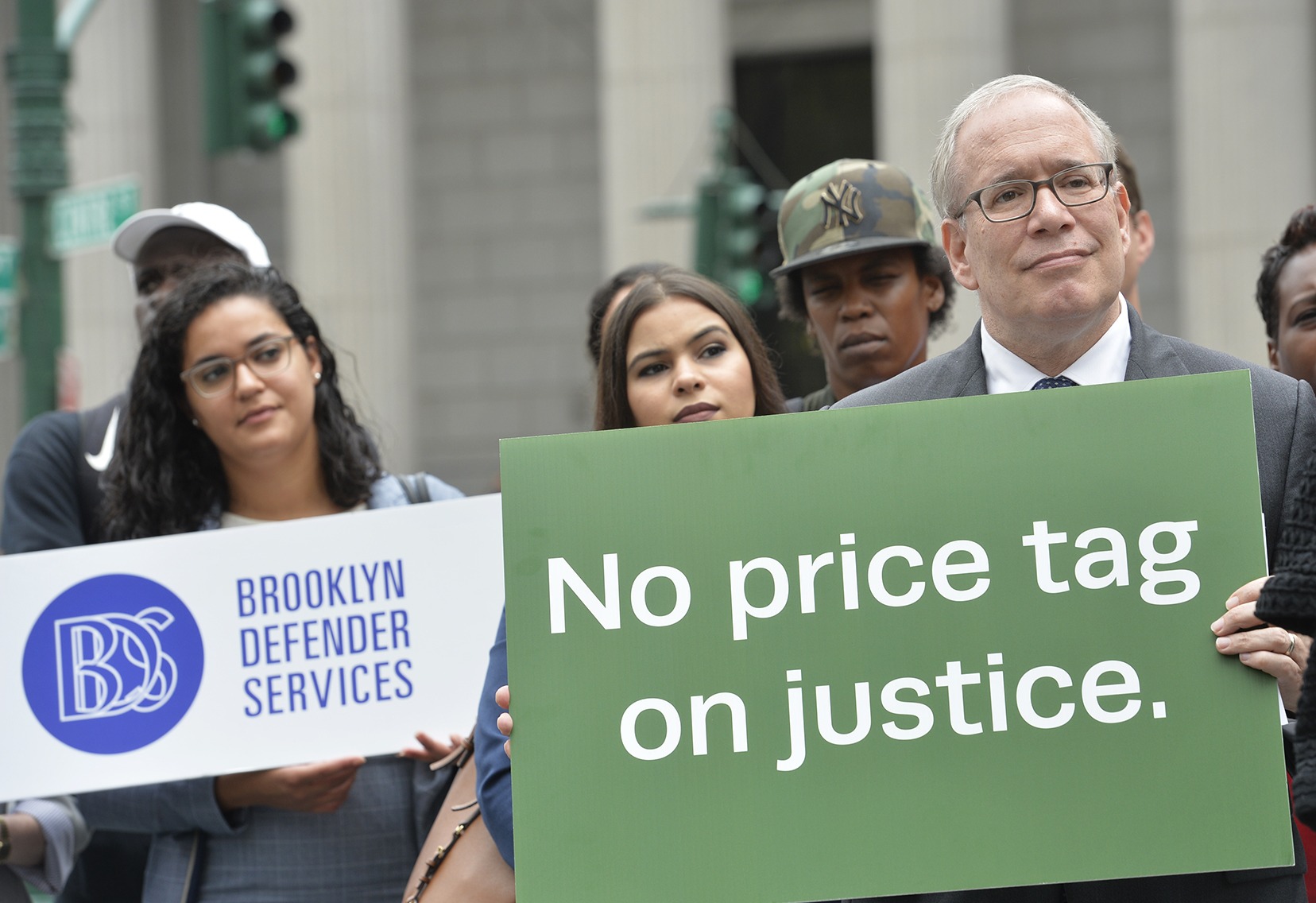Thousands of New Yorkers Face Arrest Each Year For Not Paying Fines and Fees, Report Finds
The city comptroller, state lawmakers, and advocates call on the state to end its use of fines and fees in the legal system.

When Tina went to prison in upstate New York to serve a one-year sentence in 2011, she was four months pregnant and often hungry. But she couldn’t afford the extra food she needed from the commissary. During previous arrests, Tina had racked up debt from court-mandated fees she could not afford to pay, so any money put into her commissary account was withheld and put toward the $750 she owed the city of New York.
Desperate for food, she enlisted the help of other women in the prison but was nearly sent to solitary confinement for doing so, according to a new report by New York City Comptroller Scott Stringer on fines and fees in the city and state criminal legal system.
The report found that in 2017, New York City criminal courts levied $23 million in fines, fees, and surcharges—penalties that disproportionately fell on low-income people and communities of color. “For too many New Yorkers, our criminal justice system foments an unrelenting cycle of poverty and punishment,” Stringer said in a statement.
People convicted of crimes are charged fees not only for their own supervision, but for phone calls, money transfers, and “free” tablets, the report explains. Those who don’t pay the fines go into debt while incarcerated, like Tina, sacrificing commissary money to pay them off. For those not incarcerated, a warrant can be issued for their arrests, potentially resulting in jail or prison time.
In 2017, arrest warrants were issued for over 11,200 people in New York City because they didn’t pay fines and fees associated with criminal cases, according to the report, with nearly half of them issued in the Bronx. Stringer, lawmakers, and advocates are calling on the state and city to end these fees in their criminal legal systems.
The levying of fines and fees “disproportionately works against people who are the least able to pay,” Assemblymember Yuh-Line Niou said during a press conference Tuesday, noting that last year’s statewide bail and court reforms, while crucial, should be built upon. She and Assemblymember Julia Salazar announced a forthcoming bill that would eliminate mandatory surcharges for probation and parole, and end the suspension of driver’s licenses for those who owe court debt.
When people are arrested for failing to pay fees, they go before a judge who is allowed to incarcerate them immediately or institute a payment plan. The report found that 161 people were incarcerated in 2017 simply for failing to pay fines and fees. People can be imprisoned for up to one year for not paying fines related to a felony case, and 15 days if the fee pertains to a lesser crime.
The burden of fines and fees is felt nationwide. A 2015 report by the Ella Baker Center for Human Rights found that people leaving prison owe an average of $13,607.
Stringer’s report lays out steps to address the crisis in New York state, including ending or amending city contracts in which private companies levy exorbitant fees, and abolishing incarceration as a punishment for court debt. Neither the mayor’s office nor the governor’s office immediately responded to the report.
“We live in a city where the mayor got elected promising he was going to deal with income inequality,” Minister Kirsten John Foy of the National Action Network said during the press conference. “In order to do that we cannot isolate and divorce the income equality that is caused by the unjust criminalization of poverty.”
